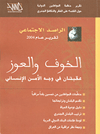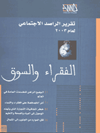Lebanon
|
Lebanon has one of the highest debt-to-GDP ratios in the world and lacks a comprehensive vision and action plan to increase productivity and efficient resource allocation for pro-poor growth. Since 1992 the post-war financial architecture has combined expansionary reconstruction policies with restrictive monetarist ones, leaving narrow fiscal spaces for socio-economic development. In order to respond to the priorities of reducing poverty and discrimination, a more contextualized set of development goals is needed in which long-term financing for development is part of an overall strategy for growth.
|
|
Source: . Published on Tue, 2010-07-20 00:00
» |
|
Published on Wed, 2010-07-07 13:24
|
|
Source: . Published on Wed, 2009-12-09 10:01
|
|
The global economic and financial crisis is receiving increasing attention in official discourse as the Government has realized that, unless it is responsibly and seriously tackled, the impact will be severe. While the direct effects of the crisis have yet to be felt in the country, the nature of the economy renders it extremely vulnerable. However, although a national dialogue is needed, the Government has not held consultations with NGOs and other concerned parties.
|
SUSCRIBE TO OUR NEWSLETTER






